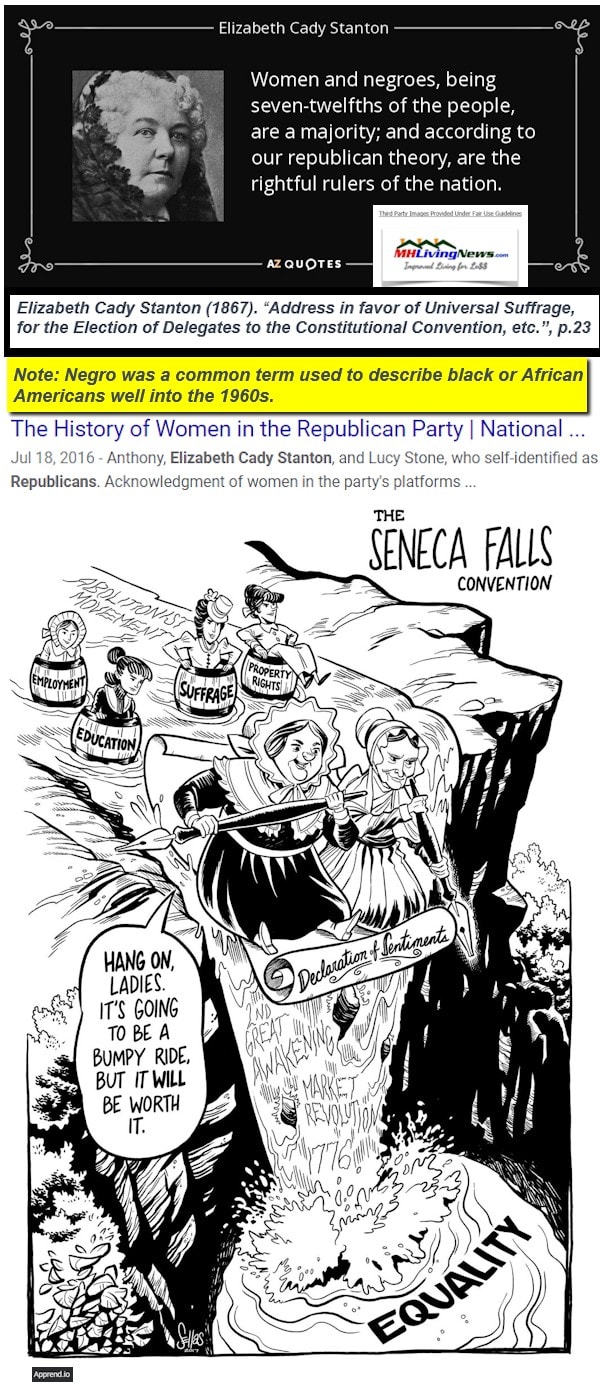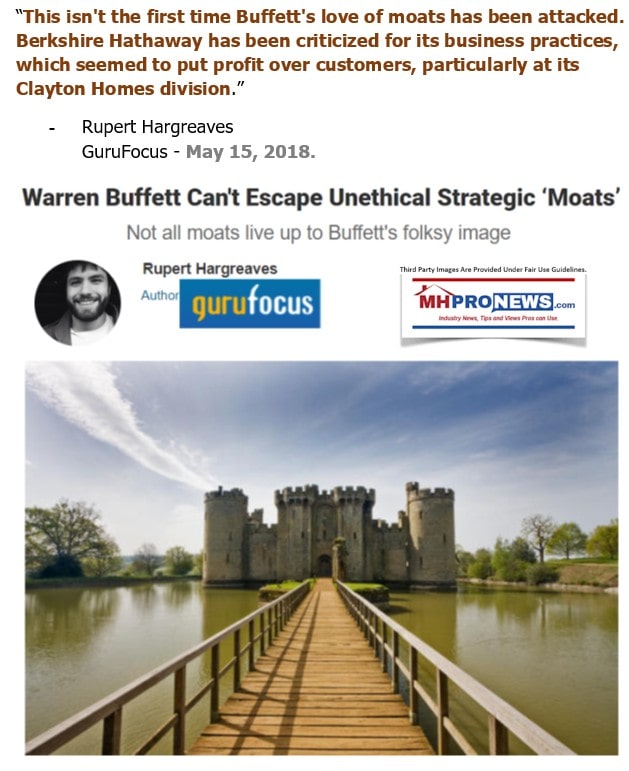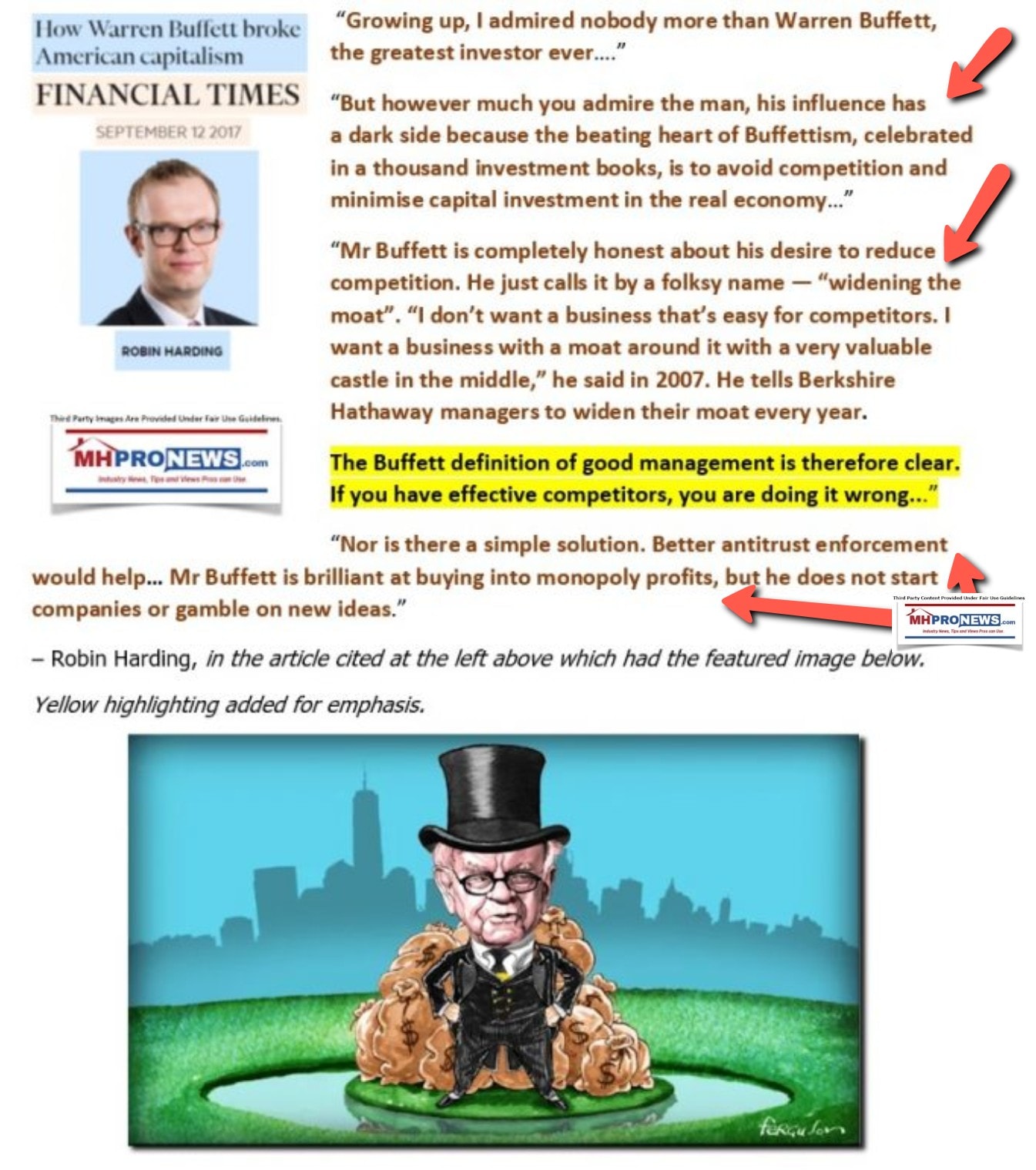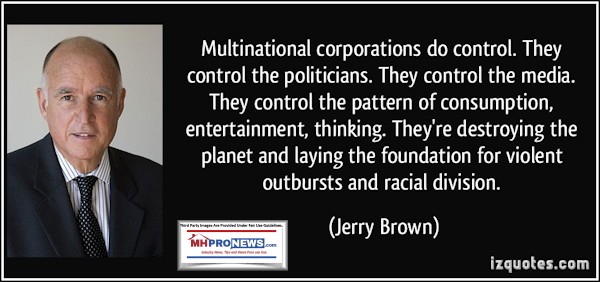Let’s start with the lyrics to two different versions of the song, “Ain’t We Got Fun.” The earlier version is from Peggy Lee, later it was performed by Doris Day. How this relates to more affordable home ownership will be made clear on the far side of these two versions of the lyrics and related videos. It is noteworthy that “Ain’t We Got Fun“ was “a popular foxtrot published in 1921 with music by Richard A. Whiting, lyrics by Raymond B. Egan and Gus Kahn. It was first performed in 1920 in the Fanchon and Marco revue Satires of 1920, then moved into vaudeville and recordings. “Ain’t We Got Fun?” and its jaunty response to poverty and its promise of fun (“Every morning / Every evening,” and “In the meantime, / In between time”) have become symbolic of the Roaring Twenties, and it appears in some of the major literature of the decade, including The Great Gatsby by F. Scott Fitzgerald and in Dorothy Parker‘s award-winning short story of 1929, “Big Blonde.” That’s per left-leaning Wikipedia.
Some line spacing are added below, but the text is as in the original as quoted. Next up will be the Great Gatsby then the Doris Day versions, which have some differences. But they include the same refrain that is highlighted. That highlighting will be unpacked afterwards too.
Ain’t we got fun
Peggy Lee
Every morning, every evening
Ain’t we got fun?
Not much money, oh, but honey
Ain’t we got fun?
The rent’s unpaid, dear
We haven’t a car
But in any way, dear
We’ll stay as we are
Even if we owe the grocer
Don’t we have fun
Tax collector’s getting closer
Still we have fun
There’s nothing surer
The rich get rich and the poor get poorer
In the meantime, in between time
Ain’t we got fun?
Don’t we have fun?
Still we have fun
Even if we owe the grocer
Don’t we have fun?
Tax collector’s getting closer
Ooh, what fun
There’s nothing surer
The rich get rich and the poor get poorer
In the meantime, in between time
Don’t we have fun?
Source: LyricFind
This version of the song from the movie The Great Gatsby, substitutes the phrase “we haven’t a bus” – which makes sense for that era – instead of “we haven’t a car.”
Next is the Doris Day version, which has some differences than the video shown, but which includes the same refrain that is highlighted. A typo in “owe” has been corrected below. The highlighting will be unpacked afterwards too.
Ain’t We Got Fun?
Doris Day
Every morning
Every evening
Ain’t we got fun
Not much money
Oh, but honey
Ain’t we got fun
The rent’s unpaid dear
And we haven’t a car
Oh, but anyway dear
We’ll stay as we are
Even if we owe the grocer
Don’t we have fun
Tax collector’s getting closer, (au)
Still we have fun
There’s nothing surer
The rich get rich and the poor get poorer
In the meantime
In between time
Ain’t we got fun
Every morning
Every evening
Ain’t we got fun
Not much money
Oh, but honey
Ain’t we got fun
The rent’s unpaid dear
And we haven’t a car
But anyway dear
We’ll stay as we are
Even if we owe the grocer
Don’t we have fun
Tax collector’s getting closer
Still we have fun
There’s nothing surer
The rich get rich and the poor get poorer
In the meantime
In between time
Ain’t we got fun
Even if we owe the grocer, don’t we have fun
Tax collector’s getting closer
Still… that they are around again
There’s nothing surer
The rich get rich and the poor get poorer
In the meantime
In between time
Still we’ve got a lot of fun
Source: Musixmatch
Note, this version of the song “Ain’t We Got Fun” clearly have several changes from the lyrics above. It’s from the 1953 movie, “By The Light Of The Silvery Moon.”
“Challenge your preconceptions, or they will challenge you,” is a fictional Vulcan proverb. Let’s challenge some common preconceptions in the next few minutes and link the evidence to those challenges. Because there are truths hiding in plain sight that need to be authentically challenged.
Reacting to Bad News, Productive Ways to Respond to Injustice and Affordable Housing
There is something to be said about making the best of a problematic situation. Approaching life in a “jaunty” manner can keep spirits higher when others might be tempted or succumb to gloom and doom.
That noted, the American Dream has never been about renting. The fact that the U.S. ranks behind dozens of countries in the percentage of home ownership, even though Americans often have a higher per capita income. That’s a startling but factually true statement. Once known, that doesn’t mean relatively low rates of homeownership should be accept. With an aspirational, can-do, prayerful mindsight, inequities and injustice has been successfully challenged before and it can be again.
In the ideal, the American Dream has been about an opportunity society which includes home ownership. Stating the obvious, millions begin adult life in rental housing before becoming a homeowner.
One of the reasons to share these versions of the song is to make the point found in the refrain.
There’s nothing surer
The rich get rich and the poor get poorer
In the meantime
In between time
Ain’t we got fun
Whatever the songwriters had in mind, that can be viewed as a realization that something is not right, that ‘the system is rigged.’ Meanwhile, while a rigged system is being challenged, make the best of your life – have some good, clean fun. There are usually good things to celebrate, while not losing sight of the need to challenge and change what is wrong. Another possible takeaway could be, just ignore the problems and have fun. That later notion is not the view being presented here.

When American society and history are carefully examined, there has always been a higher income class, and then the rest of society. The first American president was wealthy, but he also put it all on the line to gain American independence from England’s king and the state’s monopolistic charters to insider business interests of that era.

Before pressing ahead, let’s note that all that is being discussed here is fixable. We’ve seen similar before, and it was tamed. We can tame these modern versions of older issues again.

U.S. history is marked by periods of those who by gender or ethnic background didn’t have the same shot at the “American Dream” as others. That’s not a put-down of America, because as the map below reflects, most of the world, perhaps save Antarctica, there have been various forms of serfdom and/or slavery. Here in the Americas, indentured servitude included whites. Native America tribes that had wars with each other would at times take slaves following a conflict. In the South, some blacks owned other blacks. That’s not to diminish any injustice. Rather, it is to put it in a proper context. During the women’s suffrage movement, one of the battle cries was that for the most part, women and minorities were denied the same rights as whites. While the terminology below is now dated, women and blacks were being united in an effort for mutual benefit. That’s a useful principle. Thus, the facts and history reflect that this is not as clearly a ‘black vs. whites’ or minorities issue as some ‘race baiters’ may want to paint it.

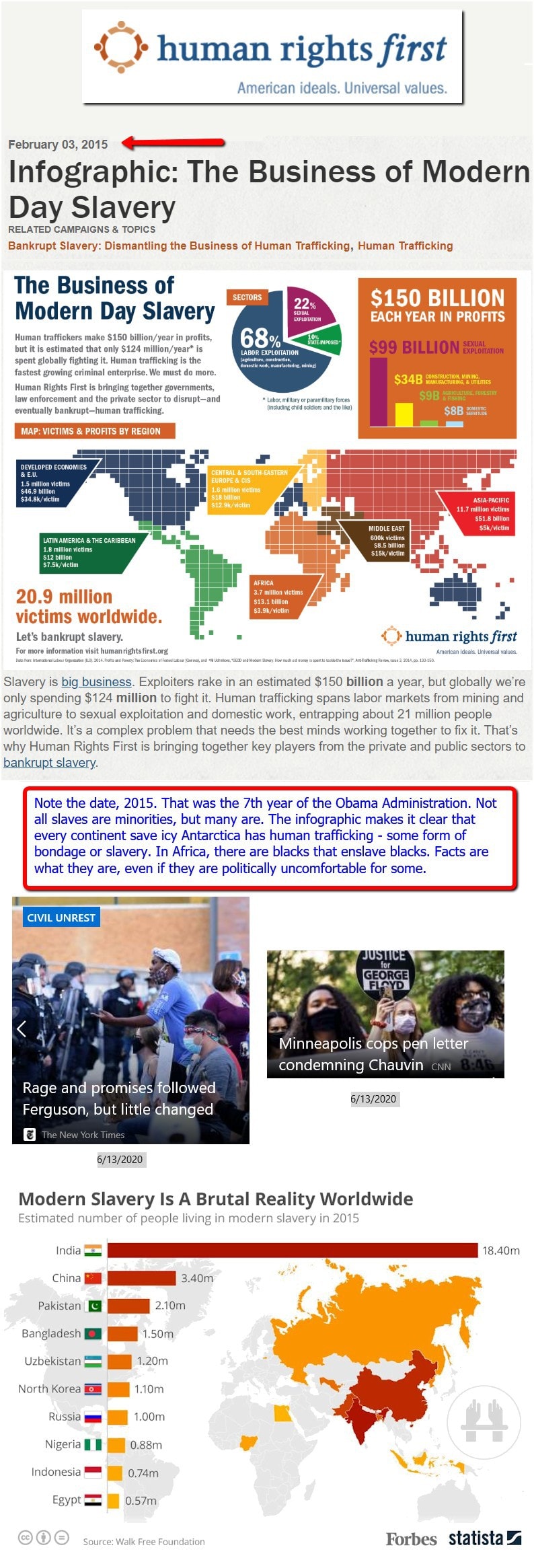
Perhaps a better way to view it is not by ethnic group or gender, but rather by economic class. “The rich get richer and the poor get poorer” need not be an absolute fact of U.S. history. But it was common to see the rich prosper at times when the poor or even the middle class suffered. A contemporary example of that is the COVID19 related struggles. Once a pandemic was declared, and ‘temporary’ lockdowns occurred, untold hundreds of thousands of often smaller businesses were lost, but big businesses deemed “essential” were allowed to stay open. By accident and/or design, the rich got richer.

Note that something similar happened after the housing mortgage crisis circa 2008. Hedge funds and deep pocket corporate players bought foreclosed housing at a discount, that were subsequently rented out. Economic disruption, whatever the cause may be, is an often proven refrain for ‘the rich getting richer’ while others suffer.
The solution here is both simple and complex. In some cases, there may be clear evidence of market manipulation and lawbreaking. If so, then those who see potential violations of law should be properly investigated and where the evidence supports state or federal actions, then those violated laws should be enforced, regardless of the wealth of those individuals.
In some ways, America is living through a new “Gilded Age” of “Robber Barons.”
Note: this Gilded Age video is a reasonably good introduction,
but showing this should not be construed as an endorsement of every claim.
The answer then and now is similar. Antitrust laws perhaps ought to be known as anti-monopoly laws, because that is what they are. Nor is there an absolute need to have a monopoly in order to enforce laws where the goal seems to be to create a monopoly or some combination by a few to dominate markets.
There is a need to be a happy warrior, to have prayer and a ‘song in the heart’ to sustain the spirit to challenge the pattern that has once more reared its ugly head. Following COVID-2020 and 2021, it was recently revealed that the top 1 percent now have more wealth than the entire middle class.

Some of that may be entirely legitimate, but some of it is arguably not, based upon evidence shown in the reports linked herein.
Some of those who may be a millionaire may have earned that entirely honestly. Nor should it automatically be assumed that every billionaire is a villain. But that some have ‘rigged the system’ and have masked that in a variety of clever ways, sometimes through ‘charitable’ efforts that may have
HUD Research Surprisingly Reveals Decades of More of the Same
The U.S. Department of Housing and Urban Development (HUD) Office of Policy Development and Research (PD&R) recently made a dramatic admission. Key insights from co-authors Pamela Blumenthal and Regina Gray begin with this: “Without significant new supply, cost burdens are likely to increase as current home prices reach all-time highs, with the median home sales price reaching nearly $375,000 by July 2021.”
Beyond the simple realities of supply, demand and costs noted in their 9.7.2021 report are some obvious but necessary items to consider. There is plenty of demand for housing. But conventional builders can’t keep up, nor are they able to attain the lower prices points required by people of modest income to qualify for the financing to become owners.
Then comes the frank evidence-based statement by Blumenthal and Gray for HUD: “The regulatory environment — federal, state, and local — that contributes to the extensive mismatch between supply and need has worsened over time. Federally sponsored commissions, task forces, and councils under both Democratic and Republican administrations have examined the effects of land use regulations on affordable housing for more than 50 years. Numerous studies find land use regulations that limit the number of new units that can be built or impose significant costs on development through fees and long approval processes drive up housing costs.”
Pause for a moment and let that 5-decade admission sink in.
- What Blumenthal and Gray acknowledge is that for 50 years, the problems have been known.
- Regardless, if a Democrat or Republican is in the White House, the solutions to zoning, regulations, and land use have often been little more than campaign talking points.
It may have been a coincidence. But that HUD PD&R was published after MHLivingNews published the report below on 8.2.2021. Our report made several of those same points, weeks earlier.

Because we do not have a login, we don’t know who from the federal government visits. But federal .gov extensions are detected by site software that records that information. Thousands upon thousands of ‘hits’ from .gov visitors are detected on this site and on MHProNews every year, per third-party Webalizer. Perhaps the research by Blumenthal and Gray may have been thus influenced. Either way, their research and our own stand on their respective merits.
Also known is that historically, zoning was born and fostered as a tool of economic and racial discrimination. Those who had a single-family home of whatever value were inclined to keep more affordable housing out.
Besides working for voting and civil rights, the Rev. Martin Luther King, Jr. efforts applied to issues of homeownership and economic opportunities for people of all whatever background. While progress has been made since the 1960s for blacks, other minorities, and women, the facts reveal that there is more work to be done.
And knowing those weaknesses gives an opening to people with time, resources, ill will, and deep pockets to act in ways that take advantage of those weaknesses and fault lines. Who says? Consider what one of the richest men in the world said about Warren Buffett, and by implication, himself too.
“I didn’t even want to meet Warren [Buffett] because I thought, ‘Hey this guy buys and sells things, and so he found imperfections in terms of markets, that’s not value added to society, that’s a zero-sum game that is almost parasitic.’ That was my view before I met him … he wasn’t going to tell me about inventing something,” Gates said per CNBC’s report on 11.8.2019.
Obviously, after they met, Buffett and Gates became friends and also strategic business, philanthropy and political allies. Did Buffett change? The evidence suggests no, so what appears to be the reality is that Gates learned from Buffett his “moat” methodology, which MHLivingNews and MHProNews have explored before.


That Moat methodology, using Gates’ view cited above, is a way of finding a weakness in a market and then creating or taking advantage of a “durable competitive advantage.”

In the affordable housing world, that meant the apparent desire by Buffett of buying into an eventually dominating manufactured housing. One must keep in mind per Fortune that “In a letter to shareholders in February, Buffett explained how his conglomerate, Berkshire Hathaway, got into the real estate business by default in 2000,” in a report dated 5.3.2018. But there may be reasons to think that Buffett had real estate and housing interests years before. After all, Berkshire had stock in the Government Sponsored Enterprises (GSEs) of Fannie Mae and Freddie Mac, which have long been two real estate mortgage giants. Furthermore, an informed source told MHProNews that Buffett had his eyes on manufactured housing since the late 1980s. Buffett thinks long term. Buffett is a reader. Buffett is patient. Buffett understands the value – from his obviously selfish vantagepoint – of working the system to his own advantage.
For evidence, consider these Buffett and related quotes.
Then, consider these linked reports.





This letter below to the editor from the WND Newscenter, used with permission, originally mentioned housing but was edited for length to focus more on the problems of big tech. That noted, the principles apply to all economic segments, tech, housing, household needs, pharma, etc.
The solution to Big Tech and the oligarchs

Anyone who thinks Big Tech will be reined in by regulations has not been paying close attention. The following cases exposed years of documented corporate, regulatory and accounting failures. They spotlight massive corruption and mainstream media misses.
- Enron
- Theranos
- WorldCom
- VW “Diesel-Gate”
- Solyndra
- Bernard “Bernie” Madoff
- WeWork
- Lehman Brothers
- Fannie Mae, Freddie Mac (Government Sponsored Enterprises/GSEs).
John Kenneth Galbraith said: “Regulatory bodies, like the people who comprise them … become, with some exceptions, either an arm of the industry they are regulating or senile.” Bingo.
Modern robber barons are dominating information and capital. Cold Fusion’s documentary about the Theranos’ scandal observed: “It’s the illusionary effect where if you repeat a lie enough times people start to believe it, especially if you have credible names surrounding the product.”
Problematic products are from corrupt companies.
Theranos’ Elizabeth Holmes is shown with then Vice President Joe Biden and President Barack Obama. In the massive Enron scandal, Ken Lay and Jeff Skilling are shown with then President George W. Bush (R). Those establishment politicians are sufficient to make the point of the “illusionary effect” of “repeating a big lie enough times” when “credible names” are involved.
Harry Markopolos and his colleagues spent years trying to get public officials and mainstream media to expose the massive Bernie Madoff fraud they knew existed. Forbes says Madoff losses may have exceeded $50 billion.
Other regulatory failures are hiding in plain sight. The New York Times quoted Warren Buffett: “There’s class warfare, all right, but it’s my class, the rich class, that’s making war, and we’re winning.”
Buffett’s “class” profited wildly in the 2008 and 2020 economic upheavals. How? CNBC quoted billionaire Bill Gates: “I didn’t even want to meet Warren because I thought, ‘Hey this guy buys and sells things, and so he found imperfections in terms of markets, that’s not value added to society, that’s a zero-sum game that is almost parasitic.'”
The CDC defines parasitic: “A parasite is an organism that lives on or in a host organism and gets its food from or at the expense of its host.”
Buffett said, “The most important thing for me is figuring out how big a moat there is around a business. What I would love, of course, is a big castle and a big moat with piranhas and crocodiles.”
When carefully examined, these oligarchs and their businesses employ “parasitic” “moat” and “sabotage monopoly” methods. They create a slow-motion monopoly of various markets. Experts like James Schmitz say monopolies “inflict great harm on low- and middle-income Americans.”
The solution? Enforce existing laws. Break these pernicious giants up. They cause social, economic and moral harm. Once broken up, watch the economy and America soar.
L. A. “Tony” Kovach ##
##
In manufactured housing, the case can be made that no other publisher or blogger even comes close to our level of focus on the underlying issues that keep affordable housing and manufactured homeownership at such low levels. Given the opportunity to refute, respond, or to try to debunk the concerns raised, Berkshire, their attorneys, and several of their surrogates and allies have routinely stood mute.



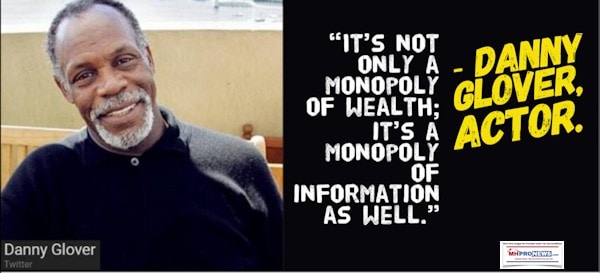
This could all be summed up in the words of Danny Glover and the late Senator William Proxmire, quoted above and below, helps to make matters clearer. In an information age, the truth can be found. But the financial elites, their political and media allies can create illusions that are believable because they are often repeated. It is only by carefully laying out the facts, and following the money trail that the truth can emerge.
Once understood, the solutions are simple. Enforce existing laws. Where laws are apparently broken, let there be authentic and transparent investigations and let the justice system be put to work.
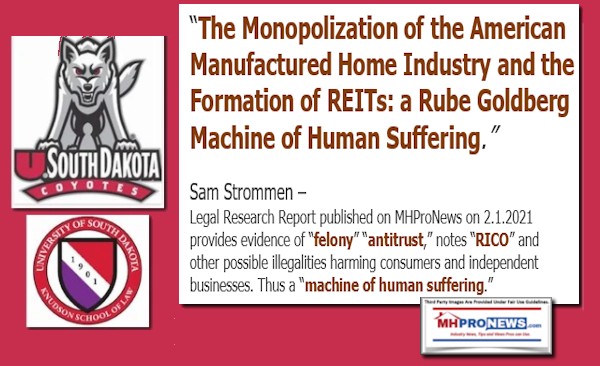








We lay out the facts and insights that others are too lazy, agenda-driven, or otherwise uninformed to do. That’s what makes our sister site and this location the runaway leaders for authentic information about affordable housing in general, the politics behind the problems, and manufactured homes specifically. That’s a wrap on this installment of “News through the lens of manufactured homes and factory-built housing” © where “We Provide, You Decide.” © ## (Affordable housing, manufactured homes, reports, fact-checks, analysis, and commentary. Third-party images or content are provided under fair use guidelines for media.) (See Related Reports, further below. Text/image boxes often are hot-linked to other reports that can be access by clicking on them.)

By L.A. “Tony” Kovach – for MHLivingNews.com.
Tony earned a journalism scholarship and earned numerous awards in history and in manufactured housing. For example, he earned the prestigious Lottinville Award in history from the University of Oklahoma, where he studied history and business management. He’s a managing member and co-founder of LifeStyle Factory Homes, LLC, the parent company to MHProNews, and MHLivingNews.com. This article reflects the LLC’s and/or the writer’s position, and may or may not reflect the views of sponsors or supporters.
Connect on LinkedIn: http://www.linkedin.com/in/latonykovach
Recent and Related Reports:
The text/image boxes below are linked to other reports, which can be accessed by clicking on them.


 manufacturedhomelivingnews.com Manufactured Home Living News
manufacturedhomelivingnews.com Manufactured Home Living News

